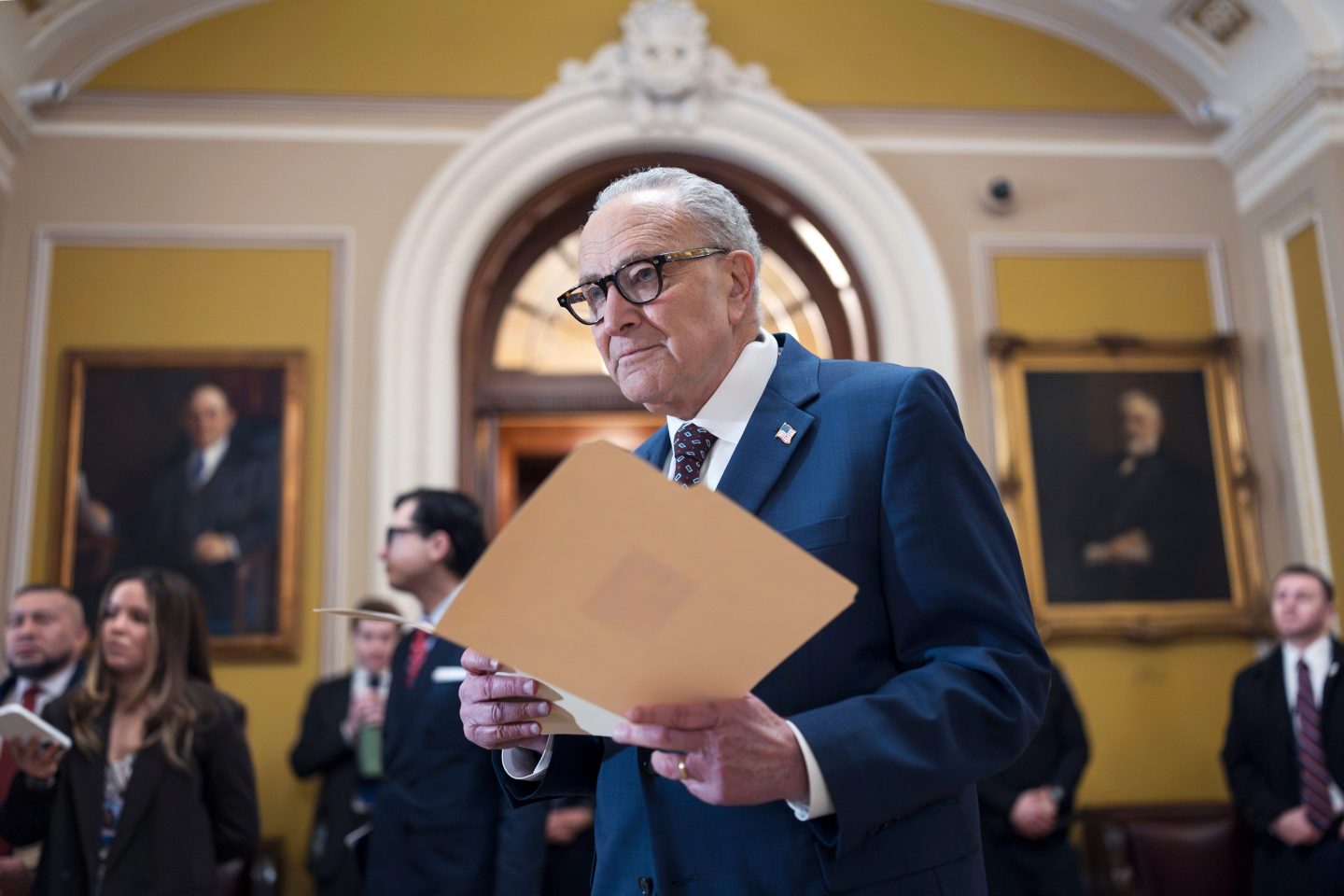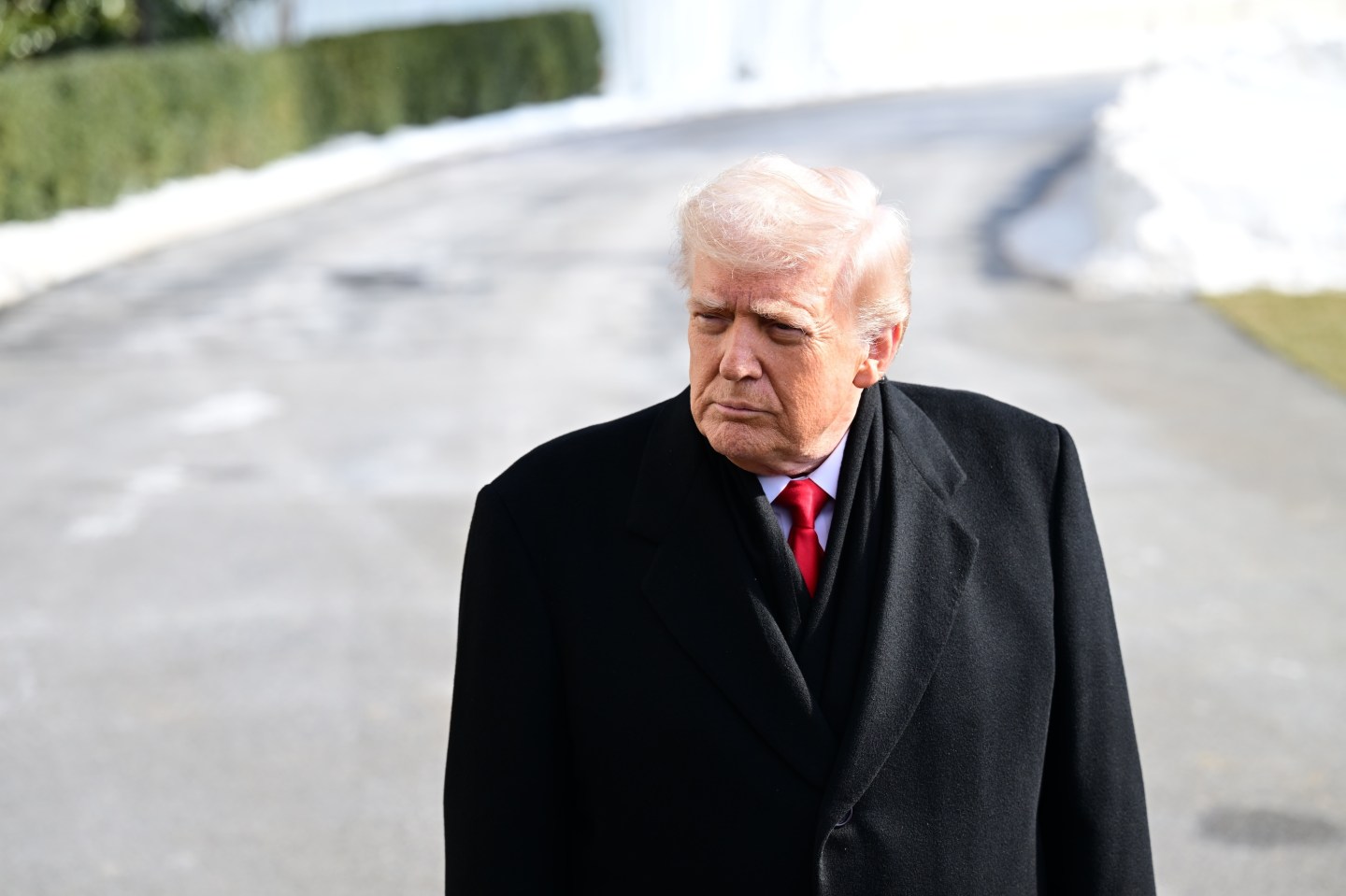President Donald Trump issued his first veto Friday, rejecting Congress’s effort to cancel his declaration of a national emergency to pay for a wall on the U.S.-Mexico border, a centerpiece of his 2016 campaign.
The congressional resolution puts Americans in “grave danger,” Trump said just before signing the veto in the Oval Office, where he was joined by family members of crime victims and law enforcement officials.
The measure—which cleared the Senate with support from a dozen Republicans—dealt a political setback to the president by seeking to block his effort to free up additional federal funds for the wall. But the Senate vote Thursday and the House vote last month were well short of the support needed to override Trump’s veto.
The Senate measure marked the second rebuke of Trump by lawmakers in as many days. On Wednesday, the GOP-controlled chamber passed a measure seeking to withdraw U.S. Military support for the Saudi-led military campaign in Yemen.
Pentagon Funds
Trump sought an end-run around lawmakers to use $3.6 billion in Pentagon construction funds for the border wall after Congress refused to provide more than $1.4 billion. By vetoing the congressional resolution, Trump can continue with his plan to tap money budgeted for the Pentagon, though Democratic state attorneys general and outside environmental groups have filed lawsuits in a bid to block the project.
The president likely will use the issue to hammer Democrats in the 2020 presidential campaign. He has repeatedly accused the party of allowing criminals and drugs to cross the southern border, while Democrats said the president manufactured a crisis for political gain.
Ahead of Thursday’s Senate vote, some Republicans joined Democrats in arguing that Trump’s use of emergency powers would erode the constitutional prerogative of Congress to appropriate federal dollars.
“This check on the executive is a source of our freedom,” said Tennessee Republican Senator Lamar Alexander, who backed the resolution. “Any appreciation for our structure of government means that no president should be able to use the National Emergencies Act to spend money that Congress refuses to provide.”
The resolution’s ability to clear both chambers of Congress could assist lawsuits arguing the declaration represents a separation of powers violation.
Congressional Votes
The Senate’s 59-41 vote Thursday was short of the 67 needed to override a veto. The House voted 245-182 for the resolution on Feb. 26, far below the two-thirds majority. If all 435 House seats were filled and everyone voted, a two-thirds majority would be 290 votes.
Before the veto, Trump tweeted that the measure “would OPEN BORDERS while increasing Crime, Drugs, and Trafficking in our Country. I thank all of the Strong Republicans who voted to support Border Security and our desperately needed WALL!”
The White House worked to limit Republican defections ahead of the Senate vote, with Trump repeatedly referring to the measure as a Democratic political gambit and saying that supporting it could hurt GOP senators politically.
Senator Thom Tillis, a North Carolina Republican, credited discussions with White House officials with his decision to vote against the disapproval resolution despite initially saying he planned to rebuke the president. He and other Republican lawmakers had a series of conversations with White House officials—including Vice President Mike Pence and the president—over their concerns about the precedent the emergency declaration would set, and possible ways to limit its use by future presidents.
While it took the president more than two years to issue his first veto, another seems likely in the coming weeks. The White House has said Trump will also reject the Yemen measure, which is likely to be approved by the House in the coming weeks.











